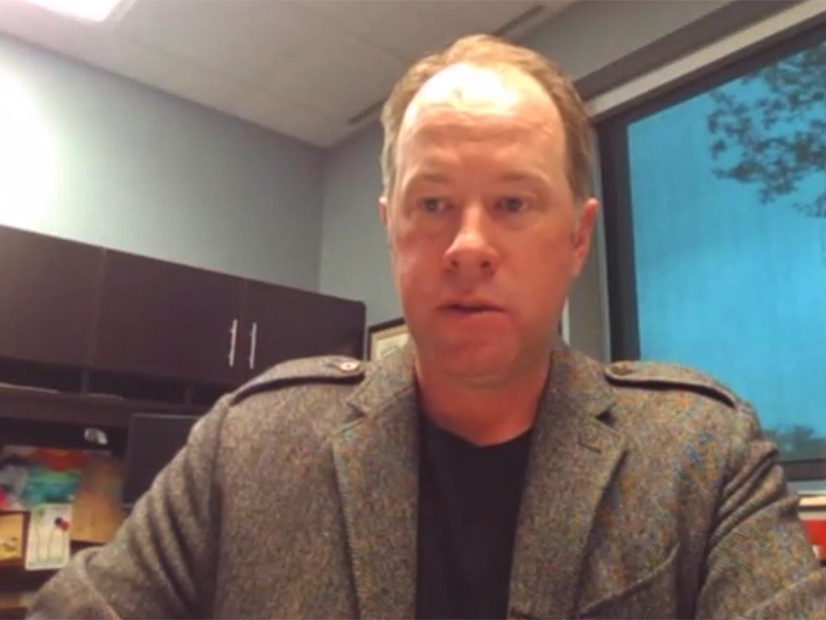NERC’s Standards Committee agreed to advance several standards development projects in a relatively smooth meeting on Wednesday, with Vice Chair Todd Bennett of Associated Electric Cooperative Inc. filling in for the absent Chair Amy Casuscelli.
First up was Project 2020-02 (Transmission-connected dynamic reactive resources), which began after NERC’s 2017 Long-term Reliability Assessment raised concerns about the replacement of retiring synchronous generators by nonsynchronous sources such as wind and solar facilities. The committee approved the project in March 2020. (See “Approvals,” NERC Standards Committee Briefs: March 18, 2020.) Wednesday’s action was to accept the standard authorization request (SAR) proposed by the SAR drafting team and to appoint the SAR drafting team as the standard drafting team (SDT).
While the motion was approved without objection, Philip Winston, formerly of Southern Co., worried that because the SAR drafting team was approved nearly two years ago, committee members may have forgotten who was on the team. Winston suggested that when such actions are before the committee in the future, members “have an opportunity to go into the records and see” the roster of the SAR drafting team to refresh their memories. Latrice Harkness, NERC’s manager of standards development, said the ERO “can accommodate” the request.
The committee next turned to Project 2021-08 (Modifications to FAC-008) and the accompanying proposal to appoint members of the SAR drafting team for the project, intended to clarify a definition in the standard and the types of equipment to which it applies. Members voted to approve all 11 candidates recommended by NERC, including the chair, vide chair and team members.
Another SAR drafting team nomination prompted more debate, with Robert Blohm of Keen Resources asking for an explanation as to why NERC only recommended six candidates for Project 2022-01 (Reporting area control error definition and associated terms) out of the seven nominations received from industry earlier this year. In keeping with the committee’s practice, candidates were not identified by name, and attendees attempted to keep identifying information to a minimum.
Harkness responded that the nominee who was not recommended “did not meet the criteria” for SAR drafting team membership; NERC’s guidelines for nominee selection specify that either ERO staff or a registered entity must attest to the nominee’s expertise in the subject matter. However, Blohm said that requirement appeared to be “well addressed” based on the information about the nominee.
In addition, Blohm pointed out that the unrecommended nominee was the only one of the slate from Canada; while he acknowledged that this might be “overstepping the identification barrier,” he wondered if the team could afford to lose this perspective. Blohm moved that NERC’s recommended slate be approved, but with the addition of the seventh nominee. This proposal passed without objection.
The committee’s next action passed more quickly, as members voted unanimously to approve the SAR for Project 2021-06 (Modifications to IRO-010 and TOP-003) and appoint the SAR drafting team as the project’s SDT.
Also unanimous was the approval of the SAR drafting team for Project 2022-02 (Modifications to TPL-001-5.1 and MOD-032-1) as recommended by NERC, although Marty Hostler of Northern California Power Agency pointed out that the candidate list did not include any candidates belonging to distribution providers. He wondered if some had been identified as load-serving entities by mistake. Harkness said this could have been because of “a checkbox that needs to be deleted on the form” and promised to look into it.




